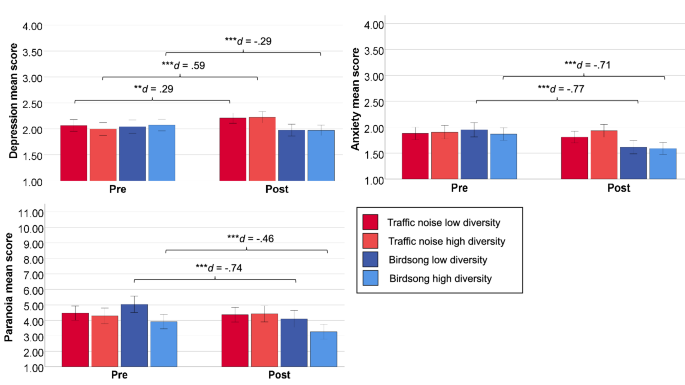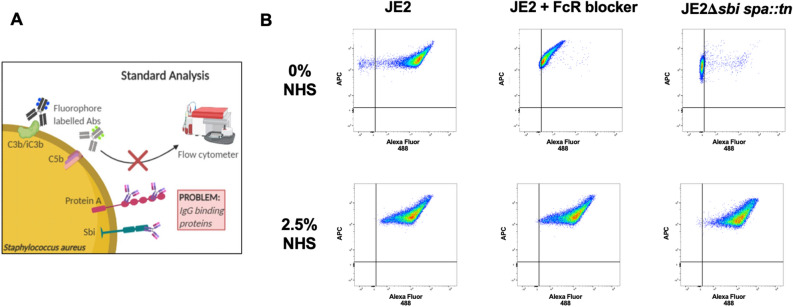鳥のさえずりが気分、パラノイア、認知に与える影響を調査する研究 Study investigates the influence of birdsong on mood, paranoia, and cognition
2022-10-17 マックス・プランク研究所
研究チームは、交通騒音と鳥のさえずりが気分、妄想、認知機能にどのような影響を与えるかを、295人の参加者を対象に無作為化オンライン実験を行い、調査した。これらの人々は、典型的な交通騒音または鳥のさえずりを、数を変えて6分間聞いた。サウンドクリップを聞く前と後に、参加者は自分の精神的健康を評価するアンケートに記入し、認知テストを実施した。
今回の研究では、鳥のさえずりを聴くことで、健康な被験者の不安やパラノイアが軽減されることが示唆された。この実験では、鳥のさえずりは抑うつ状態には影響を与えないようであった。しかし、交通騒音は一般に抑うつ状態を悪化させ、特に音声クリップに多くの種類の交通騒音が含まれている場合は、その傾向が顕著であった。
<関連情報>
- https://www.mpg.de/19373671/1017-bild-pm-2022-october-149835-x?c=2249
- https://www.nature.com/articles/s41598-022-20841-0
鳥のさえずりは、健康な参加者の不安やパラノイアを軽減させる Birdsongs alleviate anxiety and paranoia in healthy participants
E. Stobbe,J. Sundermann,L. Ascone & S. Kühn
Scientific Reports Published:13 October 2022
DOI:https://doi.org/10.1038/s41598-022-20841-0

Abstract
The present study investigated the effect of urban (traffic noise) vs. natural (birdsongs) soundscapes on mood, state paranoia, and cognitive performance, hypothesizing that birdsongs lead to significant improvements in these outcomes. An additional goal was to explore the differential impact of lower vs. higher diversity of the soundscapes by manipulating the number of different typical traffic sounds or songs of different bird species within the respective soundscapes. In a randomized online experiment, N = 295 participants were exposed to one out of four conditions for 6 min: traffic noise low, traffic noise high, birdsong low, and birdsong high diversity soundscapes. Before and after the exposure, participants performed a digit-span and dual n-back task, and filled out depression, anxiety, and paranoia questionnaires. The traffic noise soundscapes were associated with a significant increase in depression (small effect size in low, medium effect size in high diversity condition). Concerning the birdsong conditions, depression exclusively decreased after exposure to the high diversity soundscape (small effect size). Anxiety and paranoia significantly decreased in both birdsong conditions (medium effect sizes). For cognition, no effects were observed. In sum, the present study suggests that listening to birdsongs regardless of diversity improves anxiety, while traffic noise, also regardless of diversity, is related to higher depressiveness. Moreover, for the first time, beneficial, medium-sized effects of birdsong soundscapes were demonstrated, reducing paranoia. Overall, the results bear interesting implications for further research, such as actively manipulating soundscapes in different environments or settings (e.g., psychiatric wards) and testing their effect on subclinical or even clinical manifestations of anxiety and paranoia.


